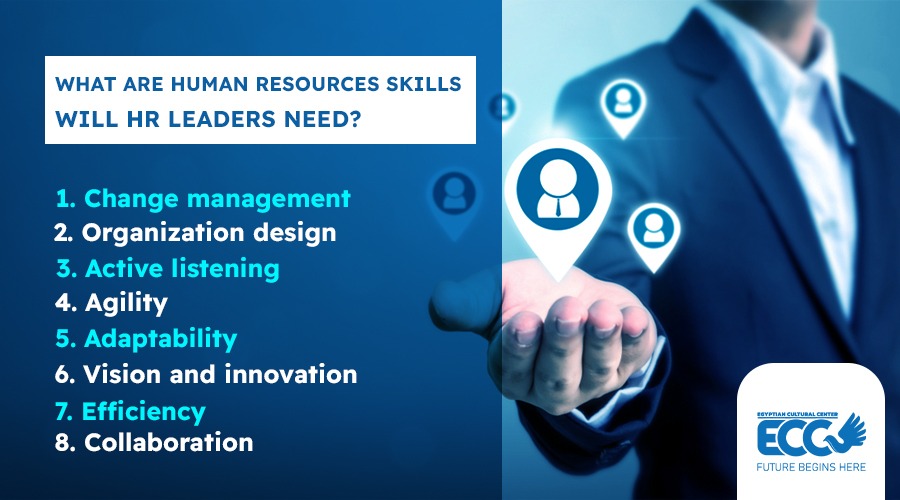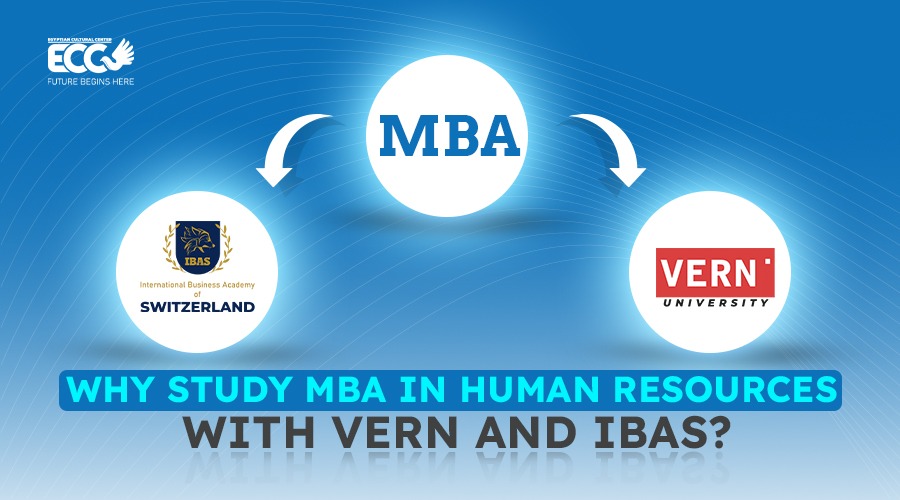MBA in Human Resources is an interdisciplinary postgraduate degree that proposes the development of management skills, and provides the ability to manage a company’s workforce with maximum efficiency.
Upon completion, the student acquires a global vision of the internal functioning of a company, and an understanding of the relationship between the departments that make it up.
Likewise, the integrated HR specialization block allows you to master the management of work teams, recruitment, personnel selection, hiring, monitoring, training, performance evaluation, onboarding, and much more.
Being MBA, by nature it covers a diversity of disciplinary areas, such as Finance, Economics, Marketing, Logistics, Management, Project Management, Business, among others; and pursues the development and enhancement of leadership skills.
Read More: What is a DBA certificate: Doctorate in Business Administration’s Full Guide
Career Opportunities for MBA with a Specialization in Human Resources
In general terms, MBA with a Specialization in HR prepares the student to access the following job positions:
- HR director.
- Human resources consultant.
- Personnel recruiter.
- Selection manager.
- Talent retention manager.
- Responsible character.
What are human resources skills will HR leaders need?

#1 Change management
A global survey shows that 45% of employees feel tired of so many changes. And, currently, organizations are learning the true consequences of working amid this metamorphosis.
Therefore, a leader is necessary who adopts strategies that reduce fatigue, supporting employees during periods of uncertainty and involving them in the processes, instead of simply telling them what is going to happen.
#2 Organization Design
The organizational design process results in a more effective company structure, improving results, empowering employees, and committing them to the company.
An HR leader with this skill, you can identify defective or dysfunctional operations in systems, structures, and procedures, to realign them with the company’s objectives, and above all, with the current reality.
#3 Active listening
There are many ways to gain the commitment of employees or collaborators, but one of the most effective is active listening. A leader’s ability to listen will make a difference when it comes to establishing effective communication, another of the skills that we will see later.
Active listening requires full attention to understand what is being communicated to us, even in non-verbal language, as well as patience and empathy. It is a bridge that brings the employee and the manager closer, making the former feel more valued, and the latter know what those people on whom the success of the company depends.
Contact with IBAS: +201000498154
#4 Agility
Within an organization, agility is understood as the ability to adapt to the most unpredictable or accelerated changes or processes. An HR leader HH must know how to accurately identify employees’ needs, reduce their response time, and calibrate strategies to achieve success.
#5 Adaptability
Part of the challenge that companies face in the face of these changes is the obsolescence of certain processes, programs, and even jobs. A leader must know how to adapt to technological, social, and work changes, and on certain occasions, unlearn some customs that impede progress.
#6 Vision and innovation
We talk about vision and innovation together, because they are skills that have taken on great importance after the disruption generated by the pandemic. Furthermore, to innovate, it is necessary to have a vision.
Currently, the most innovative companies are those that manage to maintain themselves, excel, and retain the best internal talent. But, to achieve a culture of innovation, the HR leader plays a fundamental role. Above all, he is in charge of creating the strategy and executing it, acting as an example himself.
#7 Efficiency
It is a skill that focuses on optimally achieving objectives. That is, using the least number of resources. An effective leader takes into account not only cost or time but also the proper use of the organization’s resources and the equipment necessary to meet objectives.
#8 Collaboration
Companies are changing the traditional model for one focused on collaboration, which offers a certain autonomy to people and helps speed up decision-making. This means that they are leaving behind hierarchical organizational systems to adapt towards a model of networks or teams that better adapt to changes.
People management involves, and a leader can provide his team with a climate of trust and collaboration if he values the human capital he has and gives importance to the contributions of each one. Mentoring or coaching are training and support models that leaders can use to foster collaboration.
#9 Communication
HR leaders not only have to develop the ability to transmit the company’s values and objectives to their collaborators, but also reach agreements that benefit the organization and its employees. Furthermore, he must be able to inspire and convey positive ideas to workers to prepare them for changes in the future.
Read More: MBA in Operations Management – A Complete Guide for 2024
What is MBA in Human Resources for?
MBAs are postgraduate degrees that have become very popular today. Specializing in Human Resources is a great alternative, the training is very competent and job offers abound.
MBA is a peculiar postgraduate degree classified within the Business Administration discipline. It includes a highly practical component through which students come into contact with the labor sector while taking part in simulations of real work environments.
This MBA is especially oriented to:
- University graduates with an interest in training as business leaders with a focus on the area of HR.
- Managerial profiles who want to recycle their knowledge and incorporate new personnel management tools and strategies.
- Experienced workers want to redirect their professional career towards the human resources sector and at the same time develop a managerial profile.
As an access requirement, the applicant must have an undergraduate degree
In some cases, depending on the university or program, some degrees will be more favorable than others for admission. Relevant work experience is also often considered in admissions processes.
Contact with IBAS:
Why MBA in Human Resources?

Any MBA program with a specialization in Human Resources has as its primary objective to graduate ethical managers who understand the importance and strategy of human resources in the global market.
The main function of a human resources manager is to evaluate and formulate human resources policies to retain, motivate, and recruit talent. It covers processes such as hiring, job performance evaluation, labor and employee-management relations, and payroll administration.
Human resources managers are involved in all aspects of employee management and interact with employees at different levels, unlike before, who only worked to help a company recruit and hire new staff.
Traditional MBA or MBA in HR. Which to choose?
The traditional MBA is designed to train managers with advanced business management skills.
Its foundation is to study the different functional areas of an organization to teach how to manage, partially or totally, the operations of a company.
For its part, the MBA in HR. HH (which is the specialized type), entails an extra block of learning. This allows the student, in addition to acquiring knowledge for business administration, to also develop skills in human capital management.
The conventional MBA, because it is more general and does not focus on a certain sector, has a place in any organizational setting. The specialized, on the other hand, becomes more valuable in the sphere of human resources.
Hence, the decision depends on the professional interests of each person. If the student has a strong interest in human resources, and wishes to develop their professional career in this sector, the MBA in HR is an ideal option.
If, on the other hand, the student does not have any clear preferences, the best choice may be to opt for a traditional MBA.
Read More: Leadership vs Management: Understanding The Key Difference
5 reasons why you should study MBA in Human Resources

Studying MBA in HR will mean your job growth in the not-too-distant future. Furthermore, through this career, you will learn values that, perhaps, you did not know.
- You will learn about modern theories about organization and the typology of organizational structures to carry out effective planning and successfully manage any organizational change that affects Human Resources.
- You will be trained in the personnel selection process and will know in depth the main techniques and tools for effective personnel selection.
- You will know how to effectively use the most current instruments and techniques for performance evaluation, job evaluation, training, communication, and motivation in the company.
- You will be up-to-date on advances such as knowledge management, competency management, or new ways of working.
- You will be able to identify the essential elements of the employment contract and will be able to select and draft the employment contract that best suits each job.

The mission of the Master in Human Resources: Management and People Management at VERN and IBAS to train current and future professionals in the area of Human Resources practically and competitively, through the acquisition, strengthening, expansion, and updating of knowledge and skills that allow you to successfully carry out your professional activities, taking into account the increasingly demanding demands that companies are facing to guarantee their survival in a flexible, broad, competitive and unpredictable market.
The studies usually focus on general knowledge topics such as accounting, finance, statistics, leadership and organizational behavior, business politics and ethics, etc.
MBA in Human Resources provides students with critical business thinking and leadership skills that enable understanding and organization in the management of human capital in companies.
Upon completion of the MBA, students will be prepared to serve as management analysts, recruiters, executive coaches, payroll specialists, work environment organizers, human resources directors, training coordinators, and counselors.
contact us
Conclusion
The Human Resources professional is a fundamental piece in the organization since they will contribute to the management of corporate policies aligned with the needs of the company, clients, and employees.
His analytical and human capacity allows him to manage organizational structures effectively while accompanying the employee in their growth and learning within the company.
Technological development has been established today as a constant, so seeking to increase performance, and therefore in development, through the human factor is an exciting challenge, as well as rewarding.


